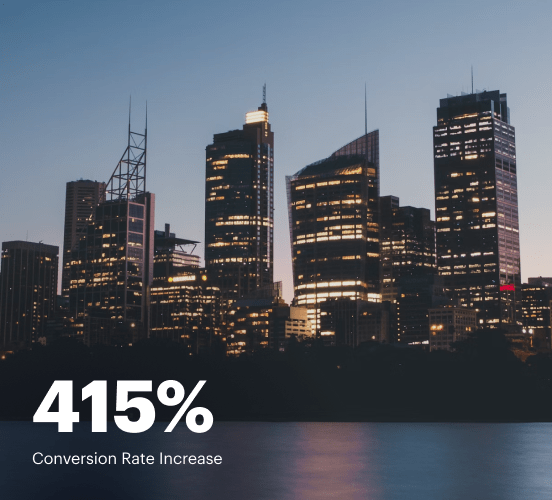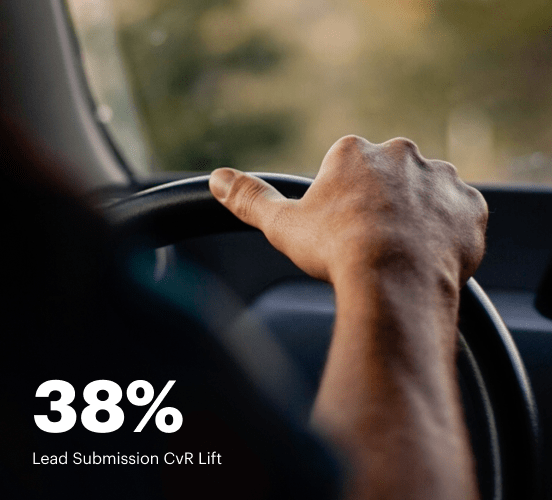Paperform vs. AWeber: the best platform for a seamless web experience
Discover how Paperform compares to AWeber regarding features and usability. Find out which platform provides the competitive advantage your business deserves.
Get startedSee how Instapage stacks up against the competition
| Feature | Instapage | Other builders |
| Drag-and-Drop Tools | ||
| Conversion-optimized templates | ||
| Manual and AI-powered A/B Tests | ||
| AI content suggestions | ||
| Popups and sticky bars | ||
| Canvas and grid blocks | ||
| Reusable and global elements | ||
| Form and popup builders | ||
| Built-in Heatmaps | ||
| Central analytics dashboard | ||
| Ad-to-page personalization and collections | ||
| Contacts, lists, and email | ||
| Dedicated, full-service CRO experts | ||
| Enterprise-ready platform |
Leading the way in building high-performing landing pages





Why Instapage is the smarter choice for your campaigns
Get everything you need to build, scale, and optimize high-converting landing pages—without coding.
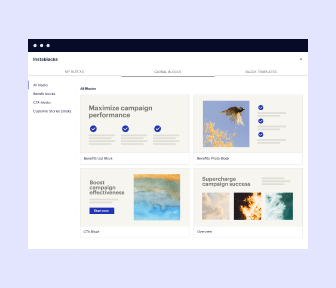
Easier page building without coding
Instapage offers a flexible and seamless page creation experience with a library of 500+ conversion-focused layouts, Instablocks®, a drag-and-drop builder, and AI content generation. With technologies like Thor Render Engine®, you can create on-brand, mobile-responsive landing pages that load quickly and start converting during initial visitor clicks.
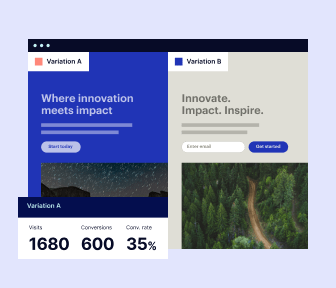
More insights — better results
Instapage lets you see in detail how each landing page experience and variation is performing so you can make targeted changes that boost page conversions. Use heatmaps for a better understanding of on-page activities, run A/B tests and AI-assisted experiments, and then track and evaluate results within robust analytics dashboards.
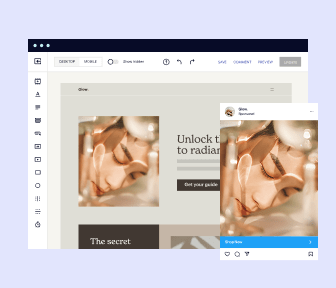
More personalized experiences
Instapage lets you quickly create high-performing landing pages tailored to each of your ad campaigns. Deliver personalized experiences for distinct audiences using dynamic text replacement. Effortlessly align specific advertisements to unique pages with AdMaps. Monitor audience-level metrics using our advanced data tools.
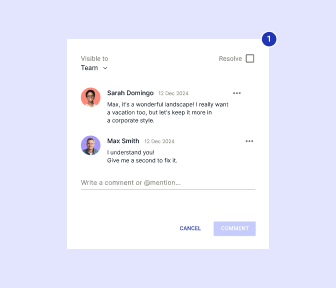
Built-in collaboration
Instapage collaboration capabilities bring your entire team together to speed up the process of landing page review, approval, and launch. No more frustrating and unnecessary revisions or edits scattered across emails. Provide instant feedback, conduct real-time page edits, and securely share your pages with outside stakeholders.
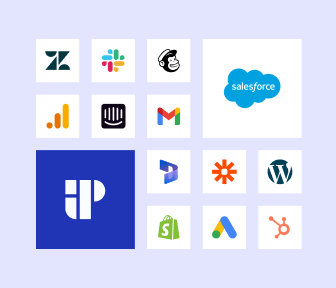
Free up time for your business
Invest time into business growth, not busy work. Launch landing pages faster with reusable forms and templates. Build once, reuse forever.
Explore all integrations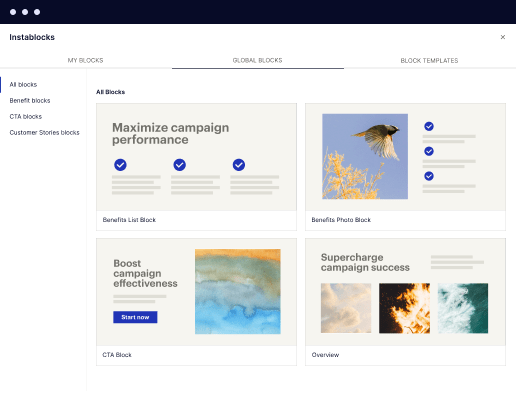
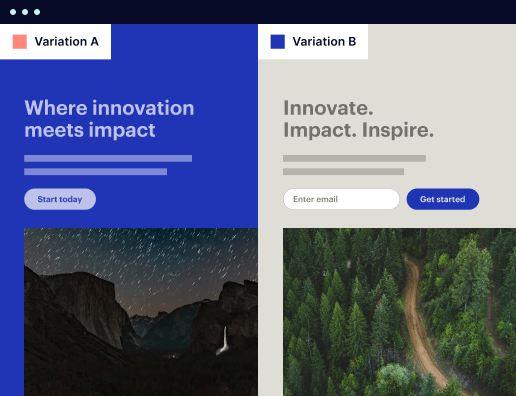
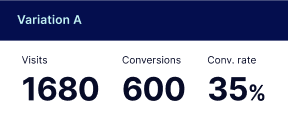
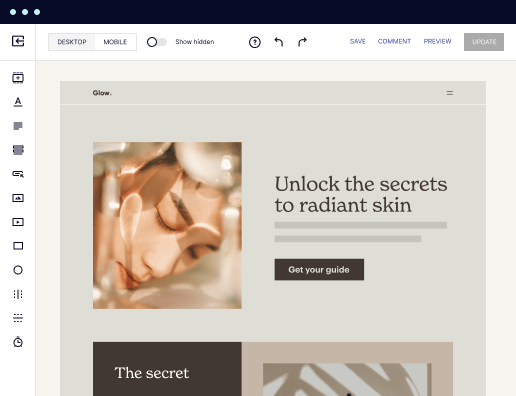

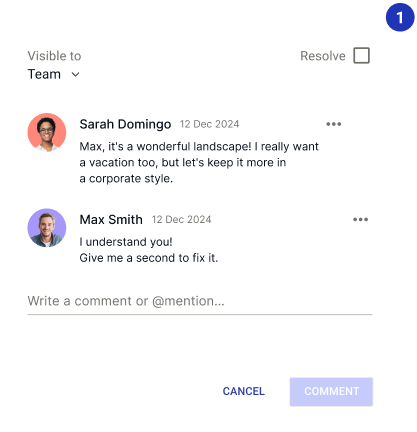

Easier page building without coding
Instapage offers a flexible and seamless page creation experience with a library of 500+ conversion-focused layouts, Instablocks®, a drag-and-drop builder, and AI content generation. With technologies like Thor Render Engine®, you can create on-brand, mobile-responsive landing pages that load quickly and start converting during initial visitor clicks.
More insights — better results
Instapage lets you see in detail how each landing page experience and variation is performing so you can make targeted changes that boost page conversions. Use heatmaps for a better understanding of on-page activities, run A/B tests and AI-assisted experiments, and then track and evaluate results within robust analytics dashboards.
More personalized experiences
Instapage lets you quickly create high-performing landing pages tailored to each of your ad campaigns. Deliver personalized experiences for distinct audiences using dynamic text replacement. Effortlessly align specific advertisements to unique pages with AdMaps. Monitor audience-level metrics using our advanced data tools.
Built-in collaboration
Instapage collaboration capabilities bring your entire team together to speed up the process of landing page review, approval, and launch. No more frustrating and unnecessary revisions or edits scattered across emails. Provide instant feedback, conduct real-time page edits, and securely share your pages with outside stakeholders.
Free up time for your business
Invest time into business growth, not busy work. Launch landing pages faster with reusable forms and templates. Build once, reuse forever.
Explore all integrationsGet started with Instapage in a few steps
-
Create your Instapage account
Start with Instapage by signing up via Google or your email. You'll get access to a free 14-day trial to discover Instapage capabilities. Feel free to cancel anytime during the 14-day trial if you decide that our product is not suitable for your business. -
Build and personalize your page
Create your first landing page from scratch or choose a template from 500+ customizable layouts. Use the drag-and-drop builder to add page elements, fonts, and backgrounds, refine content with AI, or add custom HTML, Javascript, and CSS. -
Review and make edits
Collaborate on page designs and streamline review processes. Invite your team members and stakeholders to review, edit, and provide feedback on your landing page. Collaborate knowing your page is confidential and only accessible to authorized users. -
Publish and track page performance
Publish your page to a domain or custom URL. Connect your pages to the ads you've created and track page performance within the analytics dashboard, run A/B tests and AI experiments, analyze results, and continuously optimize your landing page to maintain high conversions.
Paperform vs. AWeber: A Competitive Analysis with a Surprising Contender
When it comes to choosing the right tools for your digital marketing strategy, the options can feel overwhelming. Whether you're a small business owner, a seasoned marketer, or somewhere in between, you're likely familiar with the hustle of crafting the perfect landing page or sending effective emails. Two platforms that frequently come up in this discussion are Paperform and AWeber. Each offers unique features that cater to different marketing needs. However, there's another player on the field, Instapage, which deserves our attention. In this article, we'll dive deep into a comparative analysis of Paperform and AWeber, with a nod to Instapage lurking in the wings. Prepare to unpack the pros and cons of each tool as we help you make an informed decision that aligns with your goals.
Introducing the Competitors
Let's paint a picture of the competitive landscape. Paperform, with its intuitive form-building capabilities, positions itself as a go-to tool for those who want to create aesthetically pleasing forms with ease. While it excels in customizable forms, it’s also stacked with features that facilitate payment processing and integrations. On the other hand, AWeber is a veteran in email marketing, known for its robust automation capabilities and user-friendly interface, making it a staple for email marketers everywhere. AWeber boasts an extensive library of email templates and analytics tools that help businesses connect with their audience effectively. Besides these two contenders, we can't ignore Instapage, which specializes in high-converting landing pages. Known for its advanced features and exceptional customization options, it offers a compelling alternative to both Paperform and AWeber. Together, these platforms represent a dynamic choice for marketers seeking to enhance their digital presence.
Feature Face-Off: Paperform and AWeber
In this round, we spotlight the standout features of Paperform and AWeber. Paperform struts its stuff with an array of customizable templates, allowing creators to infuse their personality into forms. It also includes features like payment integrations, conditional logic, and powerful analytics tools that track conversions. On the flip side, AWeber brings a different set of skills to the table. Its feature set includes robust email automation capabilities, A/B testing functionality, and a visual campaign builder, all designed to help businesses foster customer relationships. Nevertheless, there’s Instapage off to the side, warming up with its landing page capabilities that could enhance either platform's effectiveness in conversion. While both Paperform and AWeber bring strong features, it’s clear that they're aimed at somewhat different goals—one focusing on forms and payments and the other on email marketing.
Usability Battle: Simplifying User Experience
Moving on to usability, let's unpack how each platform accommodates their users. Paperform takes a user-centered approach, designed for quick mastery by new marketers while still catering to the needs of pros. Its drag-and-drop functionality is akin to child’s play, making the learning process feel like an adventure rather than a daunting task. Meanwhile, AWeber caters to email marketers of all experience levels with its streamlined dashboard, which makes campaign creation feel less like climbing a mountain and more like an enjoyable stroll in the park. Despite differences in target audiences, both platforms offer extensive documentation and support to help users navigate comfortably on their journeys.
Key Features of Paperform:
- Intuitive drag-and-drop form builder
- Wide range of customizable templates
- Payment processing options
- Robust analytics and tracking
- Conditional logic for enhanced user interaction
Essential Features of AWeber:
- Visual campaign builder for easy email design
- Comprehensive automation workflows
- A/B testing functionality
- Integration with numerous web apps
Common Strengths of Both Platforms:
- User-friendly interface ensuring easy navigation
- Flexible integration options with third-party apps
- Support for analytics to track performance
- Mobile responsiveness for on-the-go management
- Solid documentation and customer support resources
It's evident that both platforms are holding their ground quite admirably. Yet, while they duke it out in the feature arena, there's Instapage quietly preparing for a robust performance designed for landing page mastery, filling a gap that neither of the other two quite addresses.
Speed Test: Performance and Loading Times
As we dive into performance, the speed at which your sites load can make or break the user experience. Just imagine slow-loading pages as molasses in winter – terribly frustrating when you're eager to get things moving. Both Paperform and AWeber make strides in ensuring quick load times, but there are nuances. Paperform excels in page responsiveness due to its lightweight design, making it great for keeping potential customers engaged. AWeber’s email campaigns are often optimized for fast delivery, but the load speed can vary depending on the recipient’s internet connection. However, Instapage, designed specifically for landing pages, leverages cutting-edge techniques to optimize speed, making it an attractive option for marketers prioritizing performance. Overall, while all platforms seek to deliver speed, instinctively check their performance metrics before making a choice.
Support Systems Comparison: Who's Got Your Back?
In any competitive landscape, having a solid support system is crucial. When exploring the user support provided, Paperform offers a variety of resources from live chat options to comprehensive documentation. Their responsive support team ensures users can quickly find solutions to common issues. AWeber, similarly, boasts a range of support channels, including email and phone support, alongside an extensive knowledge base filled with tutorials. Instapage, meanwhile, rounds out the competition with in-depth resources and 24/7 support, making it well-equipped to handle user queries swiftly. Essentially, all platforms are well-prepared to lend a helping hand when needed.
Pricing Strategies: A Breakdown of Costs
Advantages of Paperform's Pricing Structure:
- Flexible pricing plans catering to different user needs
- Monthly and yearly subscription options
- Transparent pricing without hidden fees
- Free trial to test features before committing
Perks of AWeber's Pricing Strategy:
- Affordable starting plan with essential features
- Free trial available for new users
- Discounts offered for annual subscriptions
- Price scaling based on specific requirements
When examining the pricing strategies, both Paperform and AWeber have crafted plans that cater to diverse budgets. However, Instapage has carved out a reputation for offering superb value for its comprehensive features, solidifying its status as the best bang for your buck in landing page solutions. Pricing strategies can heavily influence user choices, so consider what best aligns with your goals.
Transparently evaluating the pricing options across platforms can yield fascinating insights—sometimes, the best feature isn't always found where you expect it. As you weigh your decisions, remember to consider the additional value each platform provides.
Instapage: The Hidden Gem in the Comparison
Instapage emerges as the quiet yet powerful contender in the arena, exhibiting capabilities that both Paperform and AWeber might not fully cover. With its laser focus on creating high-converting landing pages and a suite of features built for optimization, Instapage could be the secret weapon for many businesses. It emphasizes collaboration through team functionality, allowing for seamless integration into larger marketing strategies. Moreover, its extensive analytics go beyond basic insights—offering users deep dives into audience engagement. By showcasing its unique selling points, Instapage stands tall, ready to grab the attention of those who haven't yet considered it as their top choice.
In wrapping up this comparative analysis, we find ourselves at a crucial juncture. With the ever-evolving digital marketplace, understanding platform strengths and weaknesses empowers marketers to make informed decisions. It's essential to think about personal or business objectives and how each platform aligns with those goals. We invite readers to explore the features of Instapage, which may just be what they need to amplify their marketing efforts significantly.


